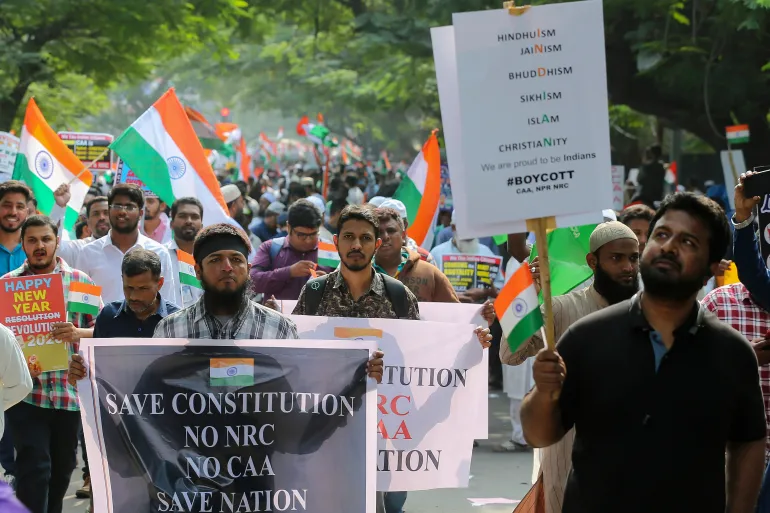In December 2019, India introduced the Citizenship Amendment Act (CAA), a piece of legislation that quickly became the center of heated national and international debate. At its core, the CAA aims to fast-track citizenship for persecuted minorities from neighboring countries; however, it conspicuously excludes Muslims, sparking allegations of discrimination.
The Genesis of Discord
Initially, the government hailed the CAA as a humanitarian gesture, aimed at assisting those facing religious persecution. However, critics were quick to point out the underlying implications of selectively choosing which religious groups were eligible for fast-tracked citizenship, effectively sidelining Muslims.
The Heart of the Matter: Exclusion and Its Implications
Furthermore, the exclusion of Muslims from the list of beneficiaries has raised profound concerns about the Act’s alignment with India’s constitutional secular values. This selective criterion has been interpreted by many as an attempt to marginalize Muslim citizens, fueling fears about their future in the country.
The Broader Canvas: National Register of Citizens (NRC)
Moreover, the CAA cannot be viewed in isolation. When considered alongside the proposed implementation of the National Register of Citizens (NRC) across India, the combined effect seems even more daunting for Muslims. The NRC requires individuals to prove their citizenship, potentially leaving millions stateless, with Muslims disproportionately affected due to the CAA’s stipulations.
Unpacking the Backlash: Protests and Public Sentiment
In response, India witnessed widespread protests, with citizens from diverse backgrounds standing in solidarity against what they perceived as an unconstitutional and discriminatory law. These protests underscored the deep fissures the CAA had exposed in the Indian polity, challenging the very ideals of inclusivity and secularism enshrined in the constitution.
The Ripple Effect: International Repercussions
Internationally, the CAA has attracted criticism from human rights organizations, foreign governments, and the global Indian diaspora. This international concern further complicates the narrative, affecting India’s diplomatic relations and its image as the world’s largest democracy.
Navigating Forward: The Path Ahead
As India continues to grapple with the implications of the CAA and the backlash it has sparked, the road ahead seems fraught with challenges. The discourse around the CAA is a reflection of broader debates on nationalism, secularism, and democracy in India, necessitating a nuanced and inclusive approach to governance.
A Call for Reflection and Dialogue
The controversy surrounding India’s Citizenship Amendment Act serves as a potent reminder of the delicate balance between national security, human rights, and the foundational principles of secularism and democracy. Moving forward, it is imperative for all stakeholders to engage in open, constructive dialogue to address these complex issues, ensuring that India’s legislative actions reflect its rich tapestry of diversity and its commitment to equality for all citizens.
